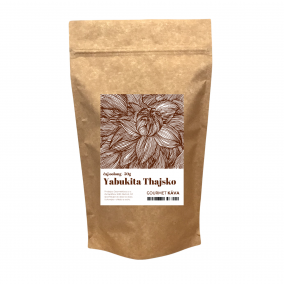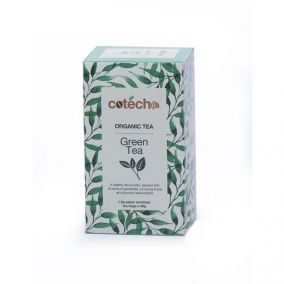It will prevent many unpleasant and dangerous diseases, slow down the aging process, promote fat burning and keep us in good mental and physical condition. How can it do all this?
Green tea owes most of its health benefits to a substance known as epigallocatechin gallate (EGCG), which is a very powerful and effective antioxidant with anti-inflammatory effects. Thanks to them, even the consumption of green tea in patients with Crohn's disease and other inflammatory bowel diseases seems more than promising. Recently, the ability of EGCG to provide the necessary bone density in the prevention of osteoporosis has also been frequently mentioned.
However, caffeine also plays a significant role in the action of green tea, as a stimulant of both metabolism and our psyche. Unlike coffee, however, green tea contains less caffeine, the effects of which are also influenced by L-theanine, an amino acid that induces relaxation, reduces anxiety but also helps with concentration. This keeps your mind calm but focused - what more could you ask for!
Study-backed effects:
- Regular drinking of green tea reduces the risk of 64% cognitive impairment in middle-aged and older people.
- In combination with regular physical activity, green tea stimulates metabolic efficiency and promotes fat burning.
- Green tea consumption reduces levels of markers typical of patients with Alzheimer's disease who have not yet experienced significant cognitive impairment.
- The substances in green tea may counteract a number of risk factors involved in the development of heart disease.
- Regularly drinking seven or more cups of green tea a day reduces the risk of death by up to 62%, even in people after a heart attack.
In short, whoever drinks green tea has a better chance of living longer without having to put its quality at stake.
Sources:
https://www.ncbi.nlm.nih.gov/pmc/articles/PMC7640442/
https://link.springer.com/article/10.1007/s11332-022-00955-8
https://pubmed.ncbi.nlm.nih.gov/32804140/
https://www.sciencedirect.com/science/article/abs/pii/S0939475322002472
https://www.ncbi.nlm.nih.gov/pmc/articles/PMC7903984/
best before: 2024/12/11. Victoria Green Itumbe is the orthodox take on green tea. The garden is situated in the volcanic mountains between Lake Victoria and the Masai Mara forest. Flavour: herbaceous and grassy with fruity undertones
best before: 2024/12/11. Victoria Green Itumbe is the orthodox take on green tea. The garden is situated in the volcanic mountains between Lake Victoria and the Masai Mara forest.
Flavour: herbaceous and grassy with fruity undertones
Oolong from Thailand, which combines the flavours of green tea and light oolong. Light citrus notes are complemented by a subtle grassiness.
Tea bags of organic green tea.
Tea bags of organic green tea.
A selection of Ceylon's finest organic teas and natural herbal infusions.
A selection of Ceylon's finest organic teas and natural herbal infusions.
Tea bags of organic green tea with jasmine
Tea bags of organic green tea with jasmine
Green tea Victoria Green Itumbe Kenya 50g
Tea oolong Yabukita Thailand 50g
Tea Cotecho Organic Green Tea 30 g
Tea Cotecho gift set 9x10 bags
Green tea with jasmine Simon Lévelt BIO 35g





























































































